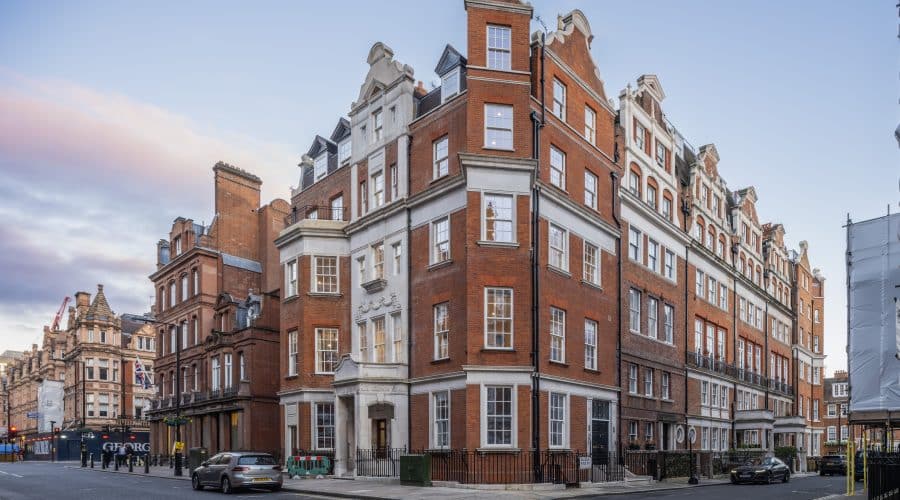By Richard Warren
Home values plummet throughout the country as mortgages dry up, with only London’s high-end real estate escaping the trend
A mortgage lending squeeze will result in property prices falling across Britain, but London’s most desirable residential districts will be least affected, analysts say.
Net mortgage lending in Britain has fallen 90 per cent in three years. The gap between new loans and repayments will narrow to £10 billion (HK$123.8 billion) this year compared with £100 billion in 2007, the Council of Mortgage Lenders (CML) reports. The body warns there could be negative net lending – more mortgages repaid than loaned – next year because the number of new mortgages is shrinking.
Many lenders have withdrawn from the home loans market. The CML was unable to complete this year’s top 30 mortgage lenders’ table because there are only six principal lenders now.
Investors, the self-employed and first-time buyers struggle most to get a mortgage – they must put down larger deposits than before the credit crunch and have fewer mortgages from which to choose.
Hong Kong and other overseas buyers must go through more credit checks, put down larger deposits and contend with frequently changing lending rules when dealing with High Street banks.
“The golden age of home ownership is over, for the moment,” Michael Coogan, the CML’s director general, told a housing conference last month. “Mortgage rationing has limited activity and left pent-up borrower demand unfulfilled since 2007.”
The CML believes the Financial Services Authority’s (FSA) proposals to regulate interest-only mortgages will make mortgages scarcer. In an interest-only mortgage scheme, a borrower pays interest on a monthly basis and repays the principal after a specified period, usually 25 years.
The CML warns interest-only schemes could “vanish” if the FSA’s proposals are implemented. Fearing the FSA’s proposals will increase costs, lenders are withdrawing interest-only loans from the market and considering forcing customers to convert to capital repayment mortgages. In a capital repayment mortgage scheme, part of the principal is repaid each month with interest payments.
At present, two-thirds of new mortgages are interest-only, which the FSA believes encourages homebuyers to borrow more than they can afford to repay.
Liam Bailey, head of residential research at property consultancy Knight Frank, says Britain’s housing market will go into a double-dip downturn if interest-only mortgages are withdrawn.
“There is no doubt that prices would fall, and access to the market would be constrained,” Bailey says. “There [is] a huge range of borrowers who use interest-only mortgages as a legitimate method of accessing the market, [such as] older borrowers, and self-employed [people].
“The most concerning issue is that lenders are now looking at taking existing interest-only borrowers off interest-only arrangements. This would be damaging and would threaten the sustainability of [many] current borrowers’ finances.”
The FSA also wants to ban self-certified mortgages – which limit checks on information borrowers give about their financial status, and are thus considered open to fraud. Banning them would reduce the number of loans issued, especially to self-employed people, the CML says. Banks are cutting mortgage lending regardless of official intervention. They are withdrawing from the buy-to-let loans sector. Landlords will welcome the news that Paragon Mortgages, the specialist buy-to-let lender that suspended operations during the credit crunch, has resumed lending.
From next year, British banks will have less money available for mortgage lending because they must begin repaying £300 billion of funding provided by the government during the credit crunch.
Prime central London residential markets, such as Knightsbridge, Mayfair and Chelsea, are likely to be less affected by mortgage cuts than Britain’s mainstream housing sector because wealthy buyers rely less on borrowing.
Camilla Dell, managing director of Black Brick, a buyers’ agency that specialises in prime central London, says many purchasers in the area pay cash. “Twenty-five per cent of our clients are cash buyers,” Dell says. “Well over 50 per cent could buy in cash if they wanted to. Even if they do decide to take finance, many of these international buyers are high-net-worth individuals and therefore banks are happy to lend to them.”
Prime central London’s housing sector is performing better than the market nationally. According to the Land Registry, prices were 12.7 per cent higher in the Royal Borough of Kensington and Chelsea in August compared with the previous year. Nationally, they were 6.7 per cent higher.
Bailey says the dislocation between prime central London’s housing market and the rest of Britain is sustainable.
“This is due not only to greater wealth inequality in the UK, which has happened despite the recession, but also the fact that international buyers concentrate their activities in London, adding hugely to demand and price pressures here,” Bailey says.
In prime central London, half of homebuyers come from overseas, Knight Frank’s research shows. Hongkongers and mainlanders comprise the largest group of overseas investors in central London’s new-build market, making 5 per cent of purchases, the agency reports.
Prime central London is likely to be less affected by public sector cuts than mainstream Britain because most of the residents work in the private sector, including financial services firms which are expanding.
“There has been a lot of positive news coming from the city [financial sector] and many management consultancy firms are recruiting in large numbers,” Dell says. “It would take another mega global financial crisis to see a repeat of the 2008 price falls we saw after Lehman Brothers collapsed.”
Dell forecasts prices will stay flat in prime central London over the next 12 to 18 months.














